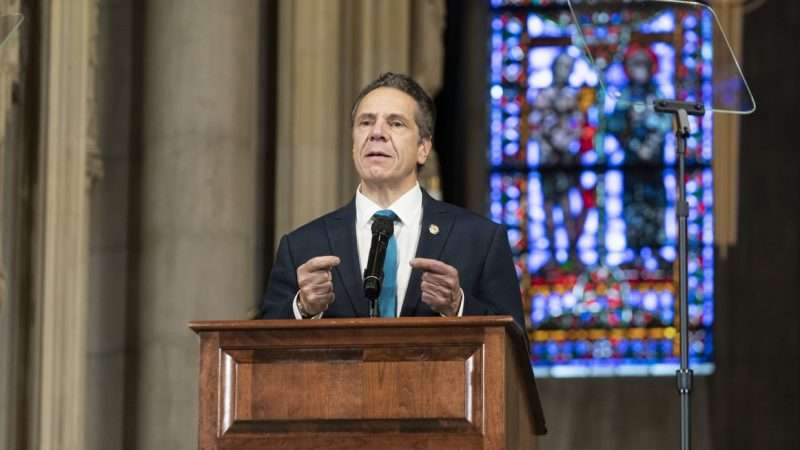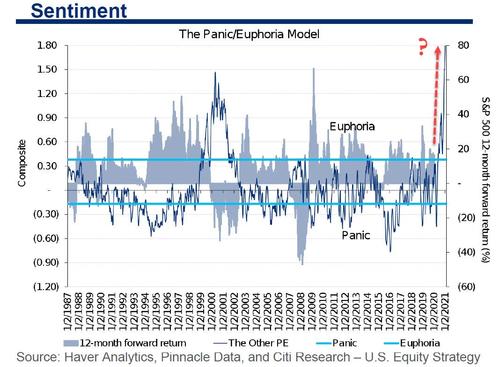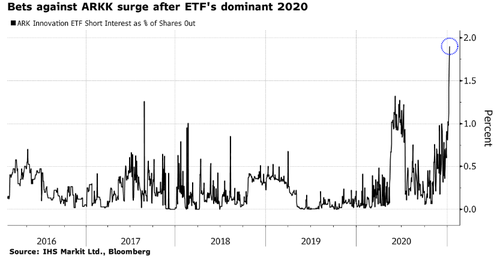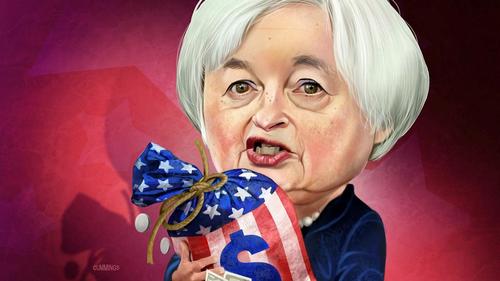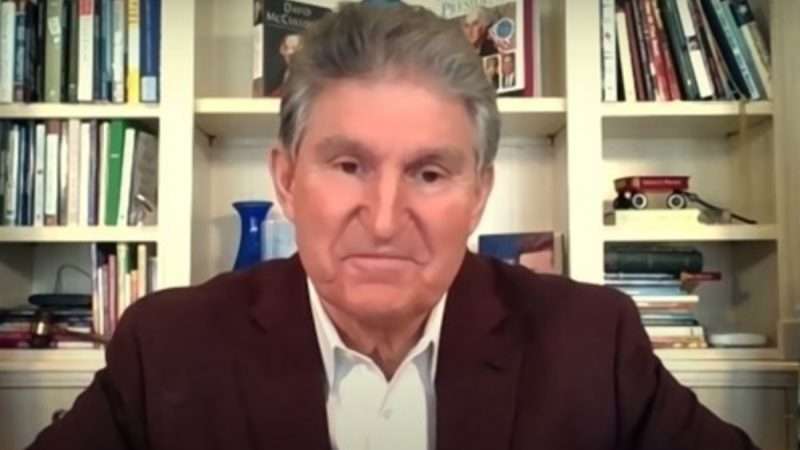Please enjoy the latest edition of Short Circuit, a weekly feature from the Institute for Justice.
This week on the Short Circuit podcast, IJ Senior Attorney Rob Frommer discusses his recent argument challenging civil forfeiture at the South Carolina Supreme Court.
- The Trump Administration repealed and replaced the Obama Administration’s signature regulation of carbon dioxide emissions from power plants, reasoning that the Obama-era rule was based on an erroneous interpretation of the Clean Air Act. D.C. Circuit: It is the EPA’s current position that is wrong. EPA has more authority to address global warming than it thinks. Dissent: To the contrary, EPA’s authority is even more limited than the Trump Administration believed.
- Yemeni diplomat in the United States loses his post in September 1994. The following month, his wife gives birth to a daughter in the United States who, at the age of 20, drops out of college and moves to Syria to join ISIS, twice marries ISIS fighters, and has a son born overseas. After the caliphate collapses, the ex-diplomat files suit seeking permission for his daughter and grandson to return to the United States. D.C. Circuit: Nope. Although she was born in the U.S., her father was not “subject to the jurisdiction” of the United States until the United Nations informed the United States of the diplomat’s termination four months later, and thus neither she nor her son are U.S. citizens.
- In 2011, the DOJ’s Office of Legal Counsel opined that the Wire Act’s prohibitions were uniformly limited to sports gambling. In 2018, the Office changed course, opining that most of the Act applies to all forms of bets and wagers. New Hampshire Lottery Commission sues. District court: The Office of Legal Counsel got it right the first time; the Act is limited to sports gambling. First Circuit: Indeed. (Fed Courts enthusiasts may also enjoy the First Circuit’s Whac-A-Moling the government’s standard trio of defenses: standing, ripeness, and mootness.)
- Observing that the “issue of qualified immunity’s role in our jurisprudence is topical, to say the least,” the First Circuit nonetheless concludes that it is “dutybound to apply” the doctrine to bar a claim involving a schizophrenic individual shot and killed by the police.
- In the spring of 2020, the Governor of Maine issued an executive order mandating that travelers coming from out of state self-quarantine for 14 days upon arrival. Two New Hampshirites (among others) sue, alleging violation of their right to interstate travel. District court: No preliminary injunction for you. First Circuit: Affirmed; the quarantine rule satisfies even strict scrutiny.
- Seeking to secure top talent for NCAA basketball teams, an Adidas executive and others funnel tens of thousands of dollars in bribes to the parents of prospective players. The scheme is found out, and they are charged with defrauding the universities of the scholarship money that could have gone to other students. Second Circuit: This widespread and tacitly approved behavior that provides enormous financial benefits to universities does, indeed, defraud those same universities of the pittances they offer student athletes. Convictions affirmed.
- Vermont will pay for high schoolers to attend up to two college courses if their high school is “publicly funded.” And Vermont generally won’t fund religious high schools, even in circumstances where it funds other private schools (an exclusion that IJ has separately sued to challenge). Second Circuit: Plaintiffs are entitled to a preliminary injunction, as they are likely to succeed on their claim that these restrictions operate as status-based discrimination against religious schools. Menashi, J., concurring: And that would also be true if Vermont was discriminating based on religious use, rather than religious status.
- Really stretch your imagination, and suppose a government reporting requirement isn’t clear. It reasonably could mean A or B. What happens if a bank reports information that is a lie under meaning A but true under meaning B? What if the bank was trying to lie under meaning A? The Third Circuit has the answer in a tour of crim-law fundamentals.
- Pennsylvania man is convicted of murder in 1995 based heavily on the testimony of two cooperating witnesses. In 2010, he discovers from public records that those witnesses had other pending charges against them—later dismissed—that the prosecutor failed to disclose. He seeks habeas relief. The trial court dismisses his petition, arguing that he could have searched the public records himself, but three years later, the Third Circuit confirms that prosecutors must turn over all exculpatory evidence, even that in public records. Third Circuit: And because of that change in the law, the trial court should reconsider its dismissal. Dissent: The standard for reconsideration is “extraordinary circumstances,” and there’s nothing extraordinary about prosecutors withholding exculpatory evidence.
- New Jersey financial advisor, seeking to take advantage of state payments for easements over farmland, fraudulently obtains a loan, which he uses to finance the purchase a company that owns a farm. He’s found out, convicted, and the government seeks criminal forfeiture of the farm. Third Circuit: Since there’s no dispute that the company—and not the fraudster—is the actual owner of the farm and that it is not simply the fraudster’s alter ego, the government can, at most, seek criminal forfeiture of the fraudster’s 40% interest in the farm (and maybe civil forfeiture of the stakes held by the other owners: the fraudster’s wife and father).
- In 2007, following Apple’s release of the iPod, iTunes, and iPhone, a company called RXD introduced a new internet-based notepad called “ipad.” Three years later, Apple released the iPad. RXD continued using the ipad mark and even launched a new “ipadtoday.com” website. Fourth Circuit: RXD is not a “first user” and should cut it out.
- Can an equity partner in a law firm sue the firm for racial discrimination under Title VII? No, holds the Fourth Circuit, as an equity partner is not an “employee” of the firm. To hold otherwise would needlessly upend understandings that have been central to the organization of firm partnerships for decades.
- The Orwellian-named “CoreCivic” operates detention facilities for Immigration and Customs Enforcement, where detainees are allegedly threatened with solitary confinement and other punishment if they refuse to participate in various work programs—including cleaning and cooking for other detainees. Fifth Circuit: CoreCivic claims Congress could not possibly have meant for the Trafficking Victims Protection Act to apply to that type of program, but we see no exception in the law. If CoreCivic wants an exemption, it will have to go to Congress. (Bonus dissenting and concurring opinions about whether CoreCivic might prevail on other grounds—and whether to even reach those other issues on a certified appeal.)
- For almost a decade, a municipal sewage system has spewed sewage onto private property—leaving “condoms, toilet paper, raw sewage, and feminine hygiene products.” Repeated requests for help went unheeded, allegedly for political reasons. Fifth Circuit: Precisely because the problem has gone on so long, the property owner’s constitutional claims are time-barred. But she might have a claim under the Clean Water Act.
- The standard for pretrial detention is “probable cause.” The standard for a criminal conviction is “beyond a reasonable doubt.” Sixth Circuit: In the unfortunate lacuna between these standards lies the plaintiff Duzaun Lester, who is out of luck despite spending 20 months in jail before the key witness at trial testified, “Honestly, um, that don’t look like Duzaun.” (To his credit, the prosecutor, who was not involved at the pretrial stage, told the jury to acquit.)
- Officer appeals decision denying qualified immunity, claiming the case should not go to a trial because there is no question that he fired his gun after the victim made a “sudden movement.” Ninth Circuit: Under the Supreme Court’s Johnson decision, we cannot review this kind of factual dispute prior to a final judgment. Dissent: Johnson strikes again. I respectfully ask the Supreme Court to clear up this confounding Johnson decision.
- Australian man living in Hawaii on an H-1B visa has a rifle in his garage. And federal law makes it a crime to knowingly possess a firearm while being an alien admitted under a nonimmigrant visa. But wait. Does that mean that government had to prove the man knew his visa was “nonimmigrant”? Just so, holds the Ninth Circuit. (But this guy totally knew, so conviction affirmed.)
- In which the Ninth Circuit denies (on procedural grounds) a habeas petition filed by an inmate who was sentenced to nine years in prison for failing to update his address with the sex offender registry within five days of becoming homeless.
- Inmate at detention center in McAlester, Okla. ingests a pill offered by fellow inmate. Days-long priapism ensues (if you’re inclined to Google it, don’t), leading to a high probability of life-long impotence. Inmate sues guards. Allegations: The guards let me linger in pain for days without getting me medical care. District court: No dice. Tenth Circuit: Yes dice, at least as to three of the guards, who, the record supports, knew of the inmate’s excruciating condition for a long time and didn’t get him help. And the county sheriff may be on the hook too, since the inmate presented a triable case on whether county policies were to blame for his neglect.
- In a slip-and-fall lawsuit involving a Ross Dress for Less, the Tenth Circuit issued an unpublished decision holding that the presence of the store’s manager destroyed diversity jurisdiction—and leaving to the district court on remand the decision whether to dismiss the manager from the case to preserve jurisdiction. Judge Hartz, meanwhile, issued a separately published dissent declaring himself “baffled” the panel did not exercise its authority to dismiss the manager from the case, given that she was never served with the complaint.
- Officers set a honeypot trap online, and a man calling himself “Rick” took the bait. From there, it was a simple matter to look up Rick’s phone number in a law enforcement database and arrest the man associated with the number. Simple, but also wrong, as it turned out the database was years out of date. Tenth Circuit: Qualified immunity.
- Employees of a federally funded nonprofit allege that they were fired for investigating potential fraud. Eleventh Circuit: Troubling, but not False Claims Act retaliation. The False Claims Act applies to false claims, and the federal funds at issue here were paid to the nonprofit automatically without any claim being filed.
Charlottesville, Va. has long been home to a large community of writers, artists, and other freelance creatives. Surprise! The City now maintains the whole community is a bunch of tax scofflaws, and is seeking to collect years of back taxes under the City’s business license tax law. Enter the Institute for Justice, which sued on behalf of a Charlottesville-based novelist. This week, the court sided with IJ and its client, holding that the City’s tax is unconstitutionally vague as applied to freelance authors.
from Latest – Reason.com https://ift.tt/39aGCeG
via IFTTT
